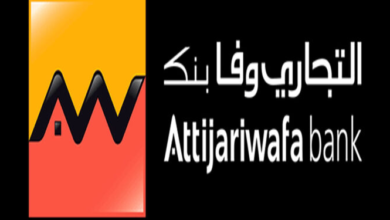قائمة المدعوين لمباراة توظيف 48 منصب في وزارة النقل واللوجيستيك 2024 – فرصتك للانضمام إلى القطاع الحكومي بالمغرب!

It looks like you’ve pasted a snippet of HTML code from a webpage, specifically the head and body sections of a WordPress site. This code includes various links to stylesheets, meta tags for SEO and social media sharing, as well as some JavaScript snippets related to Google services.
Here’s a brief breakdown of the key components in your snippet:
- Stylesheets: The
tags reference CSS files that style the webpage. These include styles for Elementor (a page builder), dark mode, RTL (right-to-left) support, and social login features.
- Meta Tags:
– The tags provide information about the document such as character set (UTF-8), viewport settings for responsive design, and SEO-related data.
- Open Graph meta tags (og:) are used to control how URLs are displayed when shared on social media platforms like Facebook.
– Twitter card meta tags define how content appears when shared on Twitter.
- Favicon Links: These specify icons that represent the website in browser tabs or bookmarks.
- Google Services Integration:
– There are snippets related to Google Tag Manager and Google Analytics which help track user interactions on the site.
– AdSense-related meta tags indicate integration with Google’s advertising platform.
- Cookie Consent Notice: A message informing users about cookie usage is included along with an option to accept cookies.
- Body Content Structure: The body contains elements for mobile navigation and search functionality but does not show any main content or articles directly in this snippet.
If you have specific questions about this code or need assistance with something particular regarding it (like improving SEO, fixing issues, etc.), feel free to ask!It looks like you’ve pasted a snippet of HTML code from a webpage, specifically the head and body sections of a WordPress site. This code includes various links to stylesheets, meta tags for SEO and social media sharing, as well as some JavaScript snippets related to Google services.
Here’s a brief overview of what each part does:
- Stylesheets: The
tags reference CSS files that style the webpage. These include styles for the theme (JNews), Elementor (a page builder), dark mode, RTL (right-to-left) support, and social login features.
- Meta Tags:
– og: tags are Open Graph protocol tags used by Facebook and other platforms to display rich previews when links are shared.
– twitter: tags provide similar functionality for Twitter.
– Other meta tags include information about the author, publication time, and content type.
- Google Services: There are snippets related to Google Tag Manager and Google Analytics which help in tracking user interactions on the website.
- Favicon Links: These specify icons that represent the website in browser tabs or bookmarks.
- Cookie Consent Notice: A message informing users about cookie usage on the site with an option to agree.
- JSON-LD Links: These provide structured data that helps search engines understand more about your content.
If you have specific questions or need assistance with any part of this code or its implications for your website’s functionality or SEO strategy, feel free to ask!It looks like you’ve pasted a snippet of HTML code, which appears to be part of a webpage, likely from a WordPress site. This code includes various and tags that are used for linking stylesheets, defining alternate formats (like RSS feeds), and including scripts for Google services such as Google Tag Manager and Google Analytics.
Here’s a brief overview of some key components in the provided HTML:
- DNS Prefetching: The
tags are used to hint the browser to resolve domain names ahead of time, which can improve loading times.
- Stylesheets: There are multiple
tags that include CSS files necessary for styling the webpage. Some stylesheets appear to be minified versions for performance optimization.
- RSS Feeds: The
tags provide links to RSS feeds related to the content on the site.
- Meta Tags:
– The generator meta tag indicates what software was used to create or manage the website (e.g., WordPress).
– There are also meta tags related to Google AdSense and Site Kit by Google, indicating integration with these services.
- Favicon Links: The links with
rel="icon"specify icons that represent the website in browser tabs or bookmarks.
- Cookie Consent Notice: There’s a cookie consent banner informing users about cookie usage on the site.
- Google Tag Manager & Analytics Snippets: These snippets allow tracking user interactions on your website through Google’s analytics tools.
If you have specific questions about this code or need help with something particular regarding it (like how it works or how you might modify it), feel free to ask!




